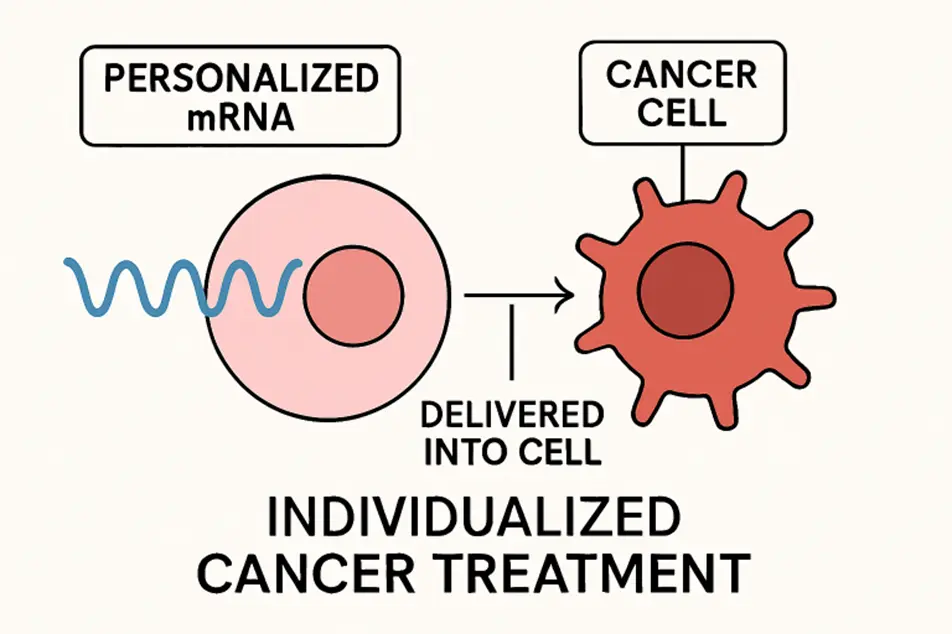Understanding mRNA-Based Cancer Therapies
In recent years, medical advancements have reshaped the cancer treatment landscape. Among the most promising innovations are personalized messenger RNA (mRNA) therapies, which harness the body’s cellular machinery to mount tailored immune responses against cancer. These therapies rely on the ability to program cells to recognize and attack cancer cells based on the unique molecular fingerprint of an individual’s tumor. This breakthrough differentiates them from conventional chemotherapy and radiation strategies.
By instructing cells to produce specific proteins that flag cancer cells for attack, mRNA-based cancer treatments can improve the accuracy and potency of the immune response. This targeted approach has particularly impacted hard-to-treat cancers where generic therapies offer limited benefits. As research progresses, related small cell lung cancer clinical trials provide insight into how personalized vaccines may combat aggressive malignancies with fewer side effects.
Unlike traditional therapies, mRNA treatments can be quickly adapted to target new cancer mutations, making them versatile tools in the evolving fight against cancer. Personalized vaccines are designed using genetic information from a patient’s own tumor, resulting in a targeted immune response specific to their cancer and reducing the risk of systemic toxicity.
At the heart of these therapies lies the intricate process of selecting tumor-specific antigens – the distinct molecules present on the surface of cancer cells. Once identified, scientists synthesize a piece of mRNA encoding these antigens, packaging it into a delivery system that ensures its uptake by immune cells. This cutting-edge personalization marks a significant departure from traditional oncology’s “one size fits all” model.
Alongside these efforts, leading global cancer centers and translational research institutions publish new research and findings. Authoritative sources like Nature Reviews Drug Discovery provide further context and analysis for a broad overview of ongoing advancements in mRNA technology and its application in oncology.
Recent Breakthroughs in mRNA Cancer Vaccines
Groundbreaking studies continue to demonstrate the effectiveness of mRNA cancer vaccines in treating a spectrum of malignancies. A notable example is the recent clinical trial combining a personalized mRNA vaccine with pembrolizumab for patients with high-risk melanoma. This approach significantly improved recurrence-free survival compared to pembrolizumab alone, reducing the risk of death by 44% while maintaining a strong safety profile.
Other encouraging results have been reported in the fight against solid tumors and hematologic cancers, thanks to mRNA formulations customized to the genetic landscape of individual tumors. Researchers are now working to expand these approaches to even more cancer types, potentially revolutionizing treatment protocols. Larger publications such as The New York Times offer regularly updated coverage for patients and providers interested in the latest trial results and approval milestones.
Innovations in mRNA Delivery Systems
One persistent challenge in mRNA cancer therapy has been ensuring that the fragile mRNA molecules reach their intended targets without being degraded or causing unintended immune reactions. Researchers at Johns Hopkins Medicine recently engineered a biodegradable nanoparticle designed to safely ferry mRNA to the spleen, a central hub for immune processes. In preclinical mouse studies, these nanoparticles activated cancer-fighting immune cells – a key step toward more effective tumor targeting and vaccine delivery.
Improving the stability and specificity of mRNA delivery systems will likely enhance the efficacy of future therapies and enable broader application across cancer types. As the search for next-generation delivery mechanisms continues, these advances are being closely monitored and improved upon in laboratories around the world.
Clinical Trials and Regulatory Approvals
The transition from scientific discovery to patient care depends on rigorous clinical testing and regulatory oversight. Multiple mRNA therapies are currently in various stages of human clinical trials, including CSPC Pharmaceutical Group’s SYS6020, which was recently approved for trials targeting myeloma cells in China. These studies are crucial for verifying safety, establishing optimal dosing, and confirming long-term outcomes in diverse patient populations.
Regulatory bodies worldwide are sharpening their focus on personalized medicine, streamlining approval pathways for promising therapies that show clear evidence of benefit with manageable risks. As more trials advance through the pipeline, the path to routine clinical use becomes increasingly defined, bringing new hope to those battling cancers with limited current treatment options.
Challenges and Future Directions
Despite the rapid progress, several challenges persist in developing and deploying mRNA-based cancer therapies. Key hurdles include the identification of ideal tumor antigens, refining methods for delivering mRNA to specific immune cells, and overcoming tumors’ ability to evade immune surveillance. Continued research, collaboration, and investment in large international clinical trials are needed to address these obstacles and validate these therapies’ long-term benefits and safety.
Looking ahead, the integration of artificial intelligence and advanced genetic sequencing could accelerate the personalization of cancer vaccines, making it feasible to produce bespoke therapeutics even for rare or refractory cancers. As the field evolves, patient participation in clinical research and open communication between researchers, clinicians, and regulatory agencies will be vital to fulfilling the promise of these groundbreaking therapies.
Conclusion
Personalized mRNA therapies are transforming the landscape of cancer care, offering new modalities tailored to each patient’s unique genetic makeup. With continued innovation in vaccine design, delivery technologies, and regulatory strategies, the future holds promise for safer and more effective cancer treatments. Ongoing research and clinical trials are crucial to unlocking the full potential of mRNA-based therapies, ultimately moving us closer to a new era of precision oncology.
Also read-Kickstart Your Tech Career with a Diploma in Information Technology at Sigma










